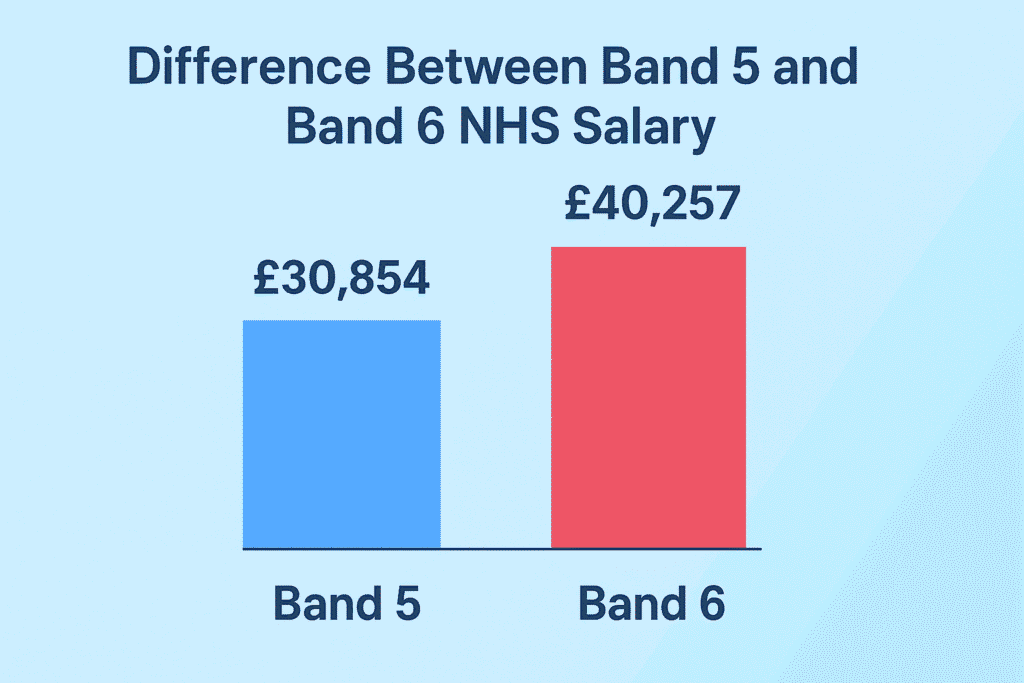If you’re currently a Band 5 nurse or clinician, your next goal is likely promotion to Band 6.
The salary difference can be significant — both in gross and take-home pay.

Band 5 vs Band 6 Salary Comparison (2025)
| Band | Step | Annual Pay (£) | Monthly Net (£) |
|---|---|---|---|
| 5 (Step 1) | New Starter | 28,407 | ~1,860 |
| 5 (Step 3) | Experienced | 34,581 | ~2,150 |
| 6 (Step 1) | Entry | 35,392 | ~2,250 |
| 6 (Step 3) | Experienced | 42,618 | ~2,480 |
Average increase from Band 5 Step 3 → Band 6 Step 1: £811/year before tax.
Role & Responsibility Differences
| Band | Typical Roles | Key Difference |
|---|---|---|
| Band 5 | Staff Nurse, Junior Physiotherapist, Radiographer | Deliver direct patient care |
| Band 6 | Senior Nurse, Specialist, Team Leader | Manage others, lead care delivery, advanced skills |
How to Progress from Band 5 to Band 6
To move up:
- Gain specialist clinical experience (e.g. wound care, ICU, mental health).
- Complete leadership or postgraduate courses.
- Apply for internal or advertised Band 6 vacancies.
Example Take-Home Pay Difference
| Band | Gross (£) | Pension (£) | Net (£) |
|---|---|---|---|
| Band 5 Step 3 | 34,581 | −2,662 | 26,900 |
| Band 6 Step 2 | 37,350 | −3,083 | 29,000 |
Approx. +£175/month higher net pay after promotion.
More Topics
What is the Average NHS Nurse Salary?
FAQs
Q1: How long does it take to move from Band 5 to 6?
Usually 2–4 years, depending on experience and training.
Q2: Is the jump between Band 5 and 6 worth it?
Yes — higher pay, leadership opportunities, and pension benefits.
Q3: Do both bands get the same pension rate?
Slightly different — Band 6 contributes a bit more (9.8%) vs Band 5 (7.7%).
